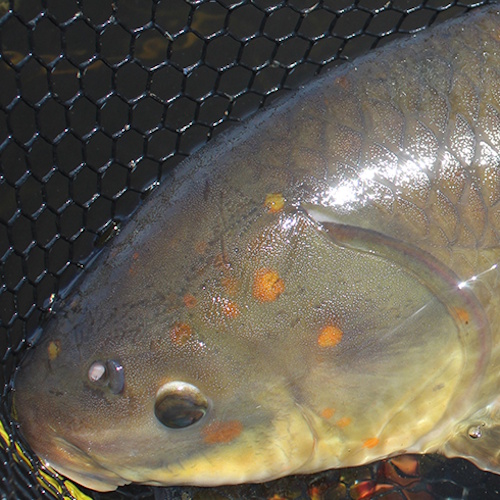Ageing gracefully is a rare trait found in few species, and even fewer have been documented in the wild. Among them, the fish population in Apache Lake, Arizona, has recently gained attention for their extraordinary longevity. In a study published in the Scientific Reports, researchers revealed the astonishing ages of various fish species inhabiting the lake, leaving scientists and anglers amazed.
Apache Lake, a large reservoir created by the Horse Mesa Dam in 1927, is renowned for its sport fishery, including bass, catfish, and trout. Despite its popularity, the age structure of the fish population remained largely unknown until now. A team of researchers University of Minnesota Duluth, embarked on a mission to uncover the secrets behind the lake's elderly residents.
To estimate the age of fish in Apache Lake, the researchers collected otoliths (ear stones) from 306 fish representing six species: largemouth bass, smallmouth bass, crappie, bluegill, sunfish, and carp. The researchers used a technique called "otolith analysis" to determine the age of the fish. Otoliths are small bones in the inner ear of fish that contain a record of the fish's growth history, much like tree rings. The researchers extracted the otoliths from the fish and examined them under a microscope to count the number of daily growth rings. They also measured the length of the fish to calculate their growth rate.
Bigmouth buffalo were found to have a remarkable lifespan, ranging from 85 to 105 years, while smallmouth buffalo ages ranged from 11 to 101 years. The two black buffalo were even older, with ages between 106 and 108 years. The majority of the bigmouth buffalo were from year classes 1920-1926, with no evidence of recruitment in the past 8.5 decades. All of the buffalofishes measured were of mature sizes.
The study also revealed intriguing recruitment patterns. Two of the three smallmouth buffalo had black spots, and one had an orange spot. Both of the black buffalo had black spots, but no orange spots. The likelihood ratio test indicated a non-random distribution of recruitment between years, providing important information for conservation efforts and fisheries management.
The discovery of such extreme longevity in Apache Lake's fish population has significant implications for freshwater fish conservation. It highlights the importance of preserving and managing similar ecosystems to maintain healthy and sustainable fish populations. Furthermore, it emphasises the need for more thorough investigations into the lives of freshwater fish, particularly those dwelling in protected environments.
The study's authors urge caution when interpreting their findings, as the ages obtained may represent maximum longevity rather than average lifespan. Nonetheless, they recommend implementing measures to protect and conserve the fish population in Apache Lake, such as regulating fishing practices, enforcing catch limits, and maintaining habitat quality. By adopting these strategies, conservationists and anglers can work together to ensure the continued prosperity of this remarkable fish population.
Conclusion:
The fascinating story of Apache Lake's ancient fish population serves as a reminder of nature's capacity for wonder and resilience. As we learn more about these incredible creatures, we must recognise the responsibility that comes with knowledge. By protecting and preserving their habitats, we can help ensure that these magnificent fish continue to thrive, inspiring future generations to cherish and respect the natural world.






